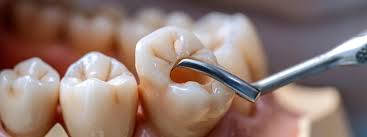Knowing when to consult a specialist for oral health problems is invaluable, particularly in cases needing surgery. Oral surgery, a branch of dentistry, focuses on diagnosing and treating complex conditions of the mouth, jaw, and face that go beyond general dental care. From tooth extractions to bone reconstruction, oral surgeons have the advanced training and technical skills needed to handle these cases effectively. Here’s more on oral surgery and when you may need to see a professional:
What Is an Oral Surgeon?
Oral surgeons, also known as oral and maxillofacial surgeons, are dental specialists trained to handle a wide range of complex conditions. They focus on health conditions that involve:
- The Mouth
- The Teeth
- The Jaw
- Facial Structures
Unlike general dentists, who focus on routine care like fillings, cleanings, and check-ups, oral surgeons are equipped to address more severe conditions. These can range from impacted teeth and jaw misalignments to facial trauma or benign growths in the mouth. Their specialized expertise makes them a key resource for managing dental issues that go beyond standard treatments.
How Do Surgeons Diagnose Dental Conditions?
An accurate diagnosis is a fundamental first step in determining the most suitable treatment for your health. During a consultation, an oral surgeon reviews your medical history, symptoms, and overall health. Oral surgeons use a combination of advanced diagnostic tools and clinical evaluation techniques to gain a full understanding of your condition before planning for oral surgery.
What Surgical Options Are There?
Oral surgeons perform a wide range of procedures designed to address both functional and cosmetic concerns. Surgeons often rely on imaging technologies, like X-rays, to assess bone structure, detect abnormalities, or identify hidden issues, including cysts or impacted teeth. This precision allows them to formulate detailed treatment strategies tailored to individual cases. Here are some types of oral surgeries:
Dental Implants
Dental implants are a popular solution for replacing missing teeth. These implants are surgically placed into the jawbone to act as anchors for artificial teeth. Some standard options include crowns or bridges. Oral surgeons play a central role in this process by verifying that the implant placement is precise and stable. They evaluate the patient’s bone quality and density before surgery and may recommend preparatory procedures if the jawbone requires reinforcement to securely support the implant.
Bone Grafting
Bone grafting is another common procedure facilitated by oral surgeons, often as a precursor to dental implant placement. This technique involves transplanting bone tissue to areas where jawbone loss has occurred. This loss is frequently a result of tooth loss, gum disease, or trauma. Material for the graft is taken from the patient or is sourced from a donor. The graft material stimulates new bone growth, restoring the jaw’s structural integrity. Bone grafting not only supports implant stability but also improves overall oral functioning.
Wisdom Teeth
Wisdom tooth extraction is perhaps one of the most well-recognized procedures performed by oral surgeons. These third molars often erupt improperly, becoming impacted or causing alignment issues with neighboring teeth. For impacted teeth deeply embedded in the gum or bone, their surgical expertise minimizes risks and promotes quicker recovery. Oral surgeons carefully remove wisdom teeth to prevent complications, including:
- Infection
- Alignment Issues
- Jaw Pain
- Overcrowding
Learn More About Oral Surgery
The expertise of an oral surgeon can significantly impact the success of major dental procedures. Whether addressing straightforward issues, like an extraction, or more complex needs, like bone grafting, their skill provides patients with precise and effective care. For more information or to schedule a consultation, reach out to a qualified oral surgeon near you.

